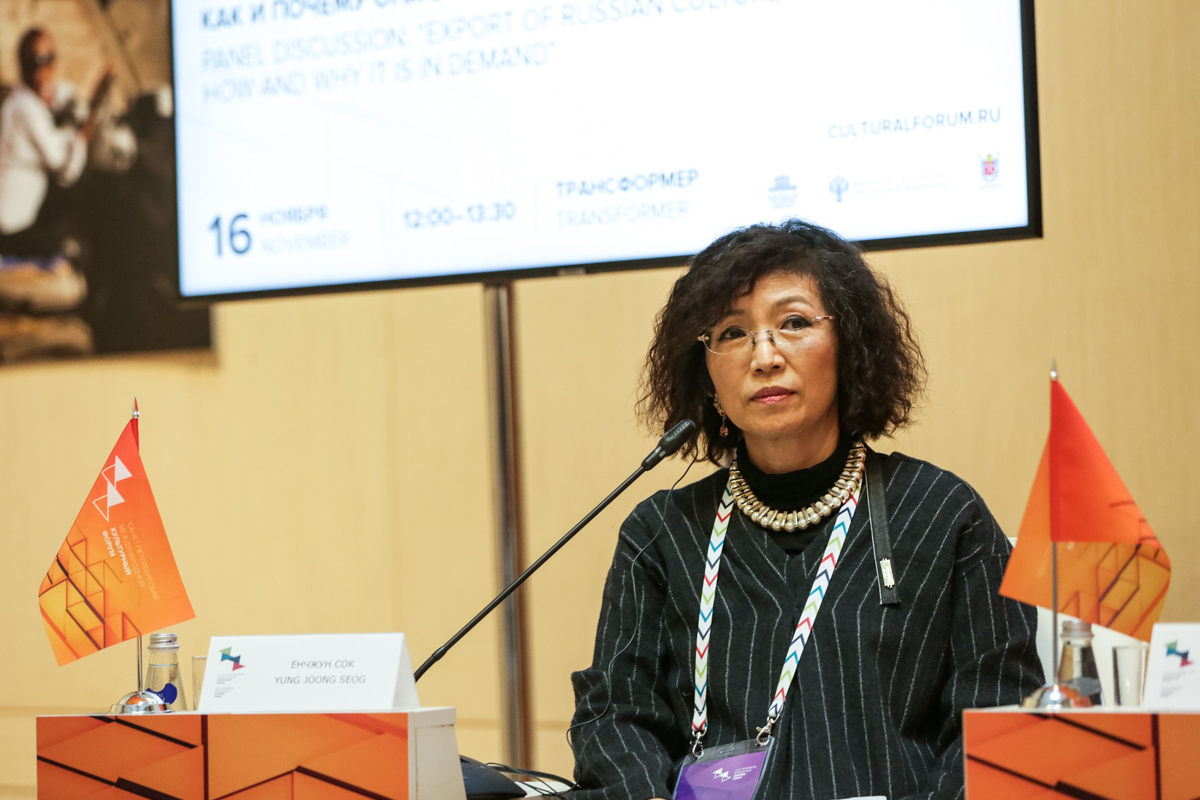It is time to build cultural bridges

The titles of the Russian classics are well known all over the world. People from different countries of Europe and Asia read the novels of Leo Tolstoy, listen to the operas of Pyotr Tchaikovsky, and admire the paintings of Ivan Aivazovsky. But is the culture of modern Russia represented well enough abroad?
This issue was discussed at the VII International Cultural Forum by the participants of the panel discussion «Export of Russian culture: How and why is it in demand?».
«In order for the works of Russian writers to become famous among foreign readers, they must be promoted. This must be combined with the suitability of the book not just for translation into another language, but for people of a different culture to understand,» said Maria Golovanivskaya, Professor of the Division of Area Studies at the Faculty of Foreign Languages and Area Studies, Lomonosov Moscow State University.
It is difficult to translate many works of modern authors so that they can be understood by people with a European perception. However, it is said that some works are written especially for export.
Such statements are often made about Russian directors. For example, some critics believe that Andrey Zvyagintsev’s films are made for a foreign audience. From the very beginning they are translated into the language of another culture. However, in order to export literature, it must firstly be convincing for its own, domestic reader. Literary agencies are necessary to distribute it both inside the country and abroad.
In the Republic of Korea, from the whole range of Russian literature, works of the 19th century are the most popular. According to statistics, it is this literature that is chosen by 73% of readers. As Seog Young Joong, Professor at Korea University noted these works were easier to understand. They offered a new look at the surrounding world. From 1972 to 2015, more than 80 Russian authors were translated into Korean. All in all, Korean readers have the opportunity to get acquainted with works of about a thousand authors in this way. If high Russian culture — such as literature and painting — is well known to the audience, then everyday culture —such as cuisine, fashion, modern music, and cinema — is still unknown. And time must pass before it opens to the Korean public. It is interesting that a similar process is also seen in the field of Russian classical music all over the world. Repertoires of conservatories and theatres of the world include works by Sergei Rachmaninoff, Modest Mussorgsky, and Sergei Prokofiev. However, contemporary young composers are practically not represented in the world space.
Russian authors have succeeded in the relatively modern art form of animated films. Foreign viewers are familiar not only with the masterpieces of Soviet animated films, but also with films made in the past two decades. The secret of the popularity of modern cartoons lies in the fact that these projects were positioned as global ones from the very beginning. They were developed for more than just the Russian market, explained Pavel Shvedov, the curator of cultural projects of the Soyuzmultfilm studio and film critic. «If we talk about what kind of animated films is in demand now, then the word "sincerity" comes to my mind. If you recall which films from the Soviet animated culture are popular abroad and are still known, then these are the films made with the sincerest motives», said Pavel Shvedov. «AleksandrPtushko’s film "The New Gulliver", shot in the mid-1930s, influenced the development of stop-motion animated cartoons all over the world. This is what Soviet animated film directors who experimented with puppet animation are credited for. Another hero to be mentioned is Lev Atamanov. If his "The Scarlet Flower" and "The Gold Antelope" are less known abroad, then "The Snow Queen" has become iconic. This film served as a reference point for many recognised directors, including Hayao Miyazaki.»
At present, Russian animated films are represented abroad by brands such as the «Masha and the Bear» franchise, which has gained popularity in Italy. They are also represented by works of authorship actively participating in the international festival movement, which are little known to the domestic audience. Therefore, Russian film and animated film directors actually become legionaries of other countries, where they create their new works. As Pavel Shvedov noted, animated films are successfully exported, since they are connected not so much with the country, as with the author as an artist. It must be acknowledged that the leakage of specialists may increase unless cinema education is supported in Russia. Conditions must be created not only for launching successful brands, but also for making experimental films.
The speakers came to the conclusion that intercultural communications are necessary for exporting the creativity of Russian authors. The example of the International Cultural Forum shows that it is in this very space that representatives of other countries have the opportunity to immerse themselves in the workflow. They can also take home impressions and information about Russian art. «It seems to me that the time has come not just for PR, which culture perceives ambiguously, but for building cultural bridges,» summed up Maria Golovanivskaya.

